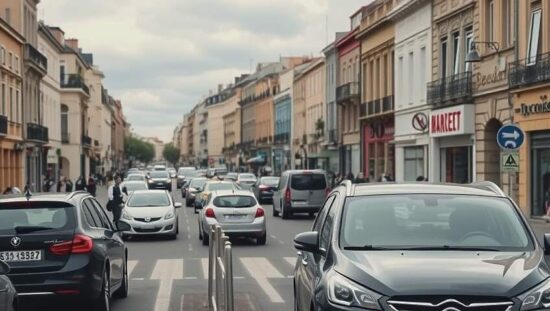The Bavarian leader Markus Söder, head of the CSU party, is intensifying pressure on the European Union to reconsider its planned ban on the sale of new gasoline and diesel vehicles by 2035. Söder, speaking after coalition committee discussions and an automotive summit, argues the current trajectory is unrealistic and risks undermining the competitiveness of European industries.
“This rigid phase-out of combustion engines needs to end” Söder asserted, emphasizing the current market penetration of electric vehicles sits at only 14-15%. He questioned the feasibility of achieving a 100% electric car market within the remaining timeframe, signaling a potential rupture within the governing coalition.
Söder publicly portrayed himself as a forceful advocate for a policy shift in Brussels, claiming he exerted “more effort than anyone else” to challenge the combustion engine ban. His stance highlights a growing internal rift, with Söder criticizing elements within the SPD (Social Democratic Party), the junior coalition partner, for clinging too rigidly to strict climate targets.
The Bavarian politician’s intervention comes amidst broader anxieties concerning the feasibility and societal impact of the EU’s ambitious decarbonization goals. While acknowledging the need for a transition to electric mobility, Söder’s push reflects concerns among German automakers about maintaining production capacity, employment and affordability.
His apparent understanding for the recent difficulties faced by his coalition partners concerning welfare reforms – referring to the citizen’s allowance debate as a “difficult pill to swallow” – suggests a strategic maneuver to secure concessions on the automotive regulations. The CSU leader expressed confidence in finding a “European solution for Europe and Germany” implying a protracted and potentially contentious negotiation period ahead. The debate underscores the increasing complexities of balancing environmental ambition with economic realities and political consensus within the EU.





